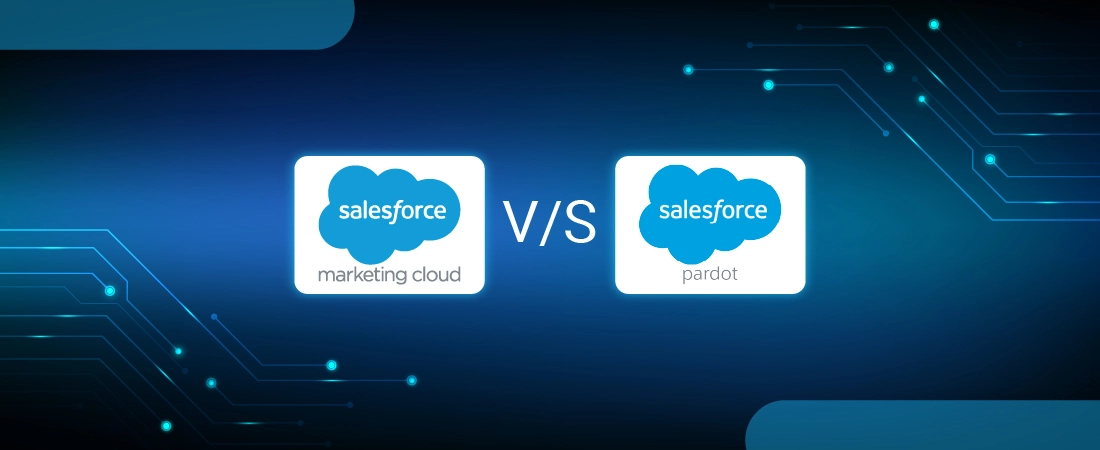“What is the difference between Marketing Cloud and Pardot?” One question that everybody asks. And this question is a legitimate one, we understand. Both Marketing Cloud and Pardot are same-same but different. They have so much in common, but they still manage to be different in quite a few aspects.
Today, we’ll see what makes the two of them different from each other. So, let’s start!
Pardot
Pardot is a marketing automation tool that was acquired by Salesforce in 2013. With Pardot, you can close more deals, build meaningful connections, and generate more pipelines. However, it suits you best if you work for the B2B (business to business) segment.
Pardot makes the lives of marketers easy with its tools that help create, deploy and manage online marketing campaigns. This, in turn, helps in revenue generation.
Marketing Cloud
With Marketing Cloud, you can deliver personalized engagement to your customers across all platforms- digital, email to web, social, advertising, and more. These campaigns can range from email marketing, SMS, social media, and display advertising. You can send 1:1 messages to your target audience.

The Key Differences
- Pardot is positioned more towards the B2B industry. On the contrary, Marketing Cloud caters to the needs of the B2C industry. However, some organizations use both tools.
- Pardot is more of an email marketing platform, whereas Marketing Cloud is an all-in-one platform that also has Social Studio, Interaction Studio, Advertising Studio, and Mobile Studio.
- Marketing Cloud allows you to deliver a 1:1 customer journey with communication across several platforms.
- For greater sales and marketing alignment for B2B teams, you can use Pardot.
- Pardot is primarily used for lead generation, lead scoring, lead assignment, email nurture campaigns, content marketing, webinar marketing, account-based marketing.
- For real-time messaging, cross-channel marketing, mobile marketing, eCommerce, social media, display advertising – Marketing Cloud is a perfect choice.
- Pardot is a comprehensive tool for marketing. You can get analytics, AI-enabled features as add-ons.
- Marketing Cloud is sold in modules. Ensure checking the marketing channels, capabilities, and other important features before making your final purchase.
The final verdict: What to choose?
Now that you know the key differences between the two, you must be wondering which one to choose. So, if you have long sales cycles and multiple decision-makers, you should use Pardot. You can also choose Pardot if your sales process is managed with leads and Salesforce Opportunities.
Consider using Marketing Cloud if you have diverse audiences spread in different segments. And, you want to deliver them personalized messages across a number of channels.
Wrap Up
We hope that you liked this article, and it helped you understand the two tools better. If you’re looking forward to Marketing Cloud implementation or Pardot implementation, then our experts can help. Contact us today to get your complimentary call where we would help you with the right guidance that you need for your business.






